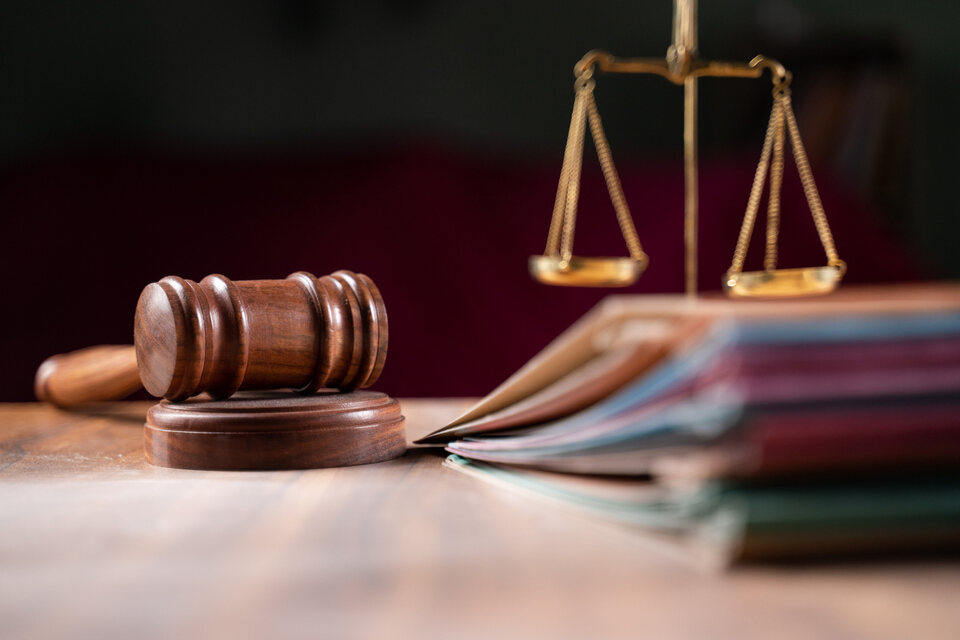
A Quiet Settlement With Loud Consequences
Amazon’s long-running battle over “social casino” apps is nearing a deal, and it could change how sweepstakes casinos operate across the U.S.
After nearly two years in court, Amazon and plaintiff Steven Horn filed a joint report on October 6, asking a federal judge for more time to finalize a settlement.
The two sides have already sat down twice — first in June, then again in September — and both say they’ve made “substantial progress” toward a deal.
At the center of the case is one uncomfortable question:
If buying virtual casino chips counts as gambling, what does that mean for sweepstakes casinos selling “Sweeps Coins”?
The Case in a Nutshell
The lawsuit — Horn v. Amazon — was filed in the Western District of Washington in November 2023.
Horn, represented by Edelson PC — the law firm best known for taking on Big Tech over digital consumer harms — says Amazon wasn’t just a bystander. The complaint claims the company helped run an illegal gambling operation by hosting casino-style apps like Big Fish Casino, Monopoly Slots, and Jackpot Party on its platform.
Here’s how it worked:
- Players bought virtual chips with real money
- They used them to play slot or poker-style games
- There was no way to cash out, but those chips could disappear in seconds
- Amazon, according to the suit, took a 30% commission on every chip sale
Under Washington state law, anything that lets you risk something of value on a game of chance can be gambling, even if the “value” is virtual.
If this sounds familiar, that is because this is the same logic states are starting to use against sweepstakes casinos, which run on the same dual-currency setup: Gold Coins for fun, Sweeps Coins for prizes.
Why It’s a Big Deal
This isn’t just a lawsuit about microtransactions. It’s about how far the definition of gambling can stretch in the digital age.
If a court (or even a quiet settlement) ends up treating Amazon’s virtual chips as gambling, the fallout could be massive. It wouldn’t just hit Amazon, it would affect app stores, sweepstakes operators, and payment processors across the board.
Platforms like Apple and Google Play could start blocking or taxing “sweepstakes-style” games the same way they do regulated casinos. Regulators could demand that sweeps brands start following AML, KYC, and consumer protection standards that mirror those of real-money operators.
And for sweepstakes casinos, that’s a nightmare scenario, because their entire legal existence depends on not being technically gambling.
Amazon’s Familiar Defense
Amazon’s defense sounds a lot like the lines we hear from sweepstakes casinos every week:
- “We’re just a platform” – Except the court record shows Amazon processed payments, hosted promotions, and earned revenue from every transaction.
- “Section 230 protects us” – Not when you’re profiting directly from the thing being challenged.
- “No cash-out = no gambling” – The same line used by every sweeps casino that’s now under legal fire in states like California and New Jersey.
Different company, same gray zone — only this time, the logo’s a lot bigger.
Settlement on the Horizon
Both sides have asked the court to extend the stay until October 10, giving them time to iron out final terms. That’s a strong indicator a settlement is close.
What’s likely on the table:
- Payouts or refunds for affected players.
- Policy changes on how Amazon distributes and promotes casino-style apps.
- Compliance requirements that could spill over into other app stores.
If it lands, it would be one of the biggest legal moments yet in the fight over where social gaming ends and gambling begins.
Why Sweepstakes Operators Should Pay Attention
This case might not name Chumba or McLuck, but its impact could hit them harder than any state ban.
If Amazon agrees to treat social casinos as gambling, app stores could start scrutinizing all casino-style products — including sweepstakes.
That means:
- Stricter app listing rules.
- More expensive ad placements.
- Fewer distribution options.
And since most sweeps casinos rely heavily on mobile installs and affiliate traffic, losing platform access could be devastating.
As one attorney put it off the record:
“If Amazon settles and admits liability, every sweeps operator just lost their best defense.”
The Bigger Pattern
The Amazon case is just the latest domino in a much bigger line:
- California, New Jersey, Montana, and Connecticut all banned sweepstakes gaming in 2025.
- Louisiana is suing VGW and WOW Vegas for $44 million in unpaid taxes.
- Playtech, Pragmatic Play, and Evolution have already pulled their games from the sweeps space.
Now, even platforms — the middlemen — are under fire.
What started as a few lawsuits has turned into a full-blown ecosystem shakeup that’s closing in from every angle.
What Happens Next
If Amazon settles quietly, it’ll probably walk away with a big check to write but no lasting precedent. Still, if that settlement includes new app-store rules, it could redraw the map for every other platform hosting casino-style or sweepstakes games.
But if talks collapse and this thing goes to trial, and Amazon loses, the fallout could be catastrophic.
Suddenly, virtual chips become “things of value.” And if that happens, Sweeps Coins aren’t far behind.
And if Amazon wins? It just delays the inevitable. Regulators will keep rewriting the rules until they get that verdict one way or another.
What It Means for Sweeps
If Amazon, one of the most powerful companies on Earth, can’t defend virtual chips as “just for fun,” then smaller sweepstakes operators don’t stand a chance.
A settlement could quietly set new digital guardrails that sweepstakes brands will have to live under. A trial loss could blow up the legal gray zone the entire industry hides behind.
Either way, the message is the same: The walls are closing in, and the next courtroom could decide whether “no purchase necessary” still means no problem.
